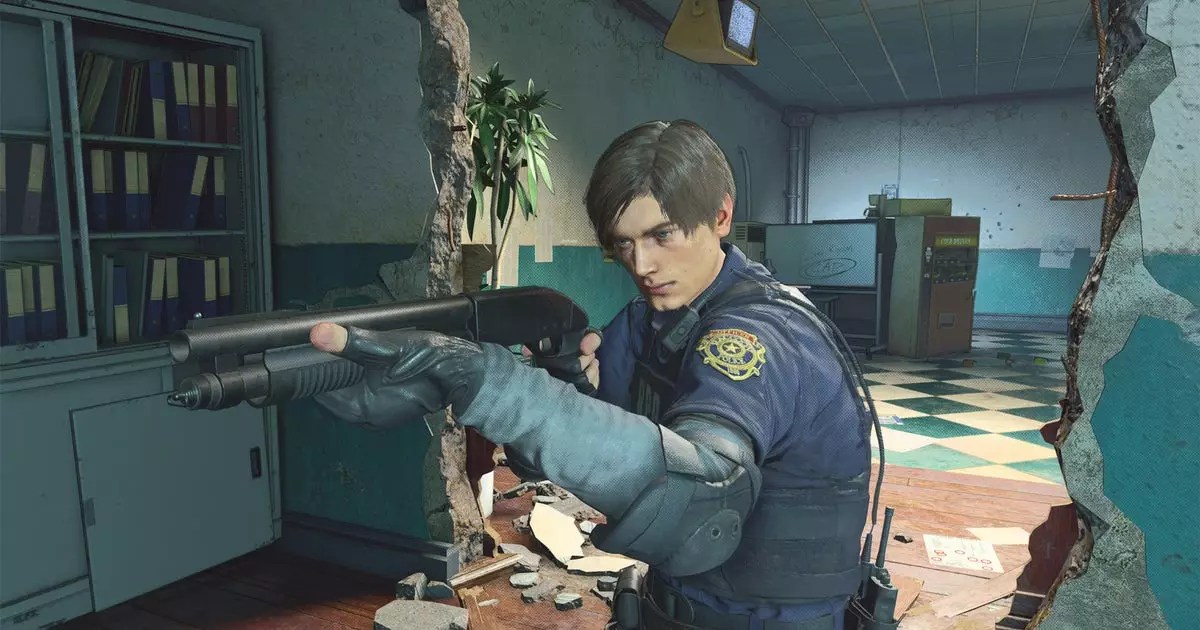Capcom’s ambitious foray into the world of multiplayer Resident Evil has met an end as sudden and brutal as a zombie ambush. In an unexpected conclusion heralded by the sun setting on the game’s servers, Resident Evil Re:Verse has officially joined the ranks of forgotten titles. Initially launched in 2022 as a special tribute to the series’ 25th anniversary, Re:Verse was a six-player third-person shooter that failed to capture the imagination it sought to celebrate. With its peak player count barely scraping past 2000 on Steam, it seems that the multiplayer incarnation of this iconic horror franchise has quickly overstayed its welcome.
The closure of the game is indicative of a futile effort that many had already predicted. By announcing the suspension of support, Capcom effectively acknowledged that while they may have intended to honor the legacy of Resident Evil, they inadvertently crafted a more fitting eulogy. The creative choices made within Re:Verse—ranging from its stylistic nods to past games to character mechanics that allowed players to transform into notorious villains—seemed too ambitious, too unrefined to resonate with the vast Resident Evil fanbase.
Pandering to Nostalgia—A Double-Edged Sword
One of the most frustrating aspects of Re:Verse was how it tried to intertwine nostalgia with modern gameplay elements. While references to classic villains like Jack Baker were sprinkled throughout, the experience felt like a disconnected series of Easter eggs rather than a cohesive game. Fans of the franchise aren’t just looking for cheap callbacks; they seek rich experiences that either deepen the story or challenge their skills. Re:Verse seemed to rely too heavily on past glories, rather than crafting an engaging narrative or innovative mechanics that could stand on their own.
Capcom’s long history with multiplayer games in the Resident Evil franchise is marred with disappointments and half-measures. Titles like Operation Raccoon City were heralded as ambitious attempts but fell flat due to poor execution. One can hardly blame fans for feeling disillusioned when Capcom’s ventures into multiplayer have often felt like consumer testing rather than genuine passion projects. The graveyard of ambitious multiplayer adaptations lies heavily on the shoulders of a company that hasn’t cultivated the right structures to support such an intricate gameplay experience.
Lessons from the Digital Graveyard
In the aftermath of Re:Verse’s downfall, the question remains: what can Capcom learn? First, it must aim for cohesion. Simply dredging up elements from the past won’t cut it anymore. Instead of iterating on nostalgia, the company should focus on engaging core gameplay mechanics that offer fresh experiences. Rather than revisiting familiar characters and scenarios without meaning, developers should cultivate new narratives or realms that could invigorate player interest.
Additionally, multiplayer games require ongoing, substantial support in the form of updates, balancing, and community engagement. Capcom’s decision to throw in the towel on Re:Verse after just over a year suggests a profound misunderstanding of what players desire in a live-service game. Continuous evolution and responsive development can make or break the multiplayer experience by nurturing a thriving community.
The Fateful Pursuit of a Multiplayer Wonder
Capcom’s attempts to carve out a place in the multiplayer arena reflect a broader trend in the gaming industry: the hunger for cooperative and competitive experiences. However, the track record is riddled with missteps that create more skepticism than excitement. Current discussions around the Resident Evil franchise point to yet another multiplayer-centric project, but with seemingly little learned from previous failures. The proposition of an online-focused title in development post-Re:Verse almost feels like a gamble— albeit one that risks repeating past mistakes.
The notion that Resident Evil can pivot towards multiplayer mediums is not fundamentally flawed; rather, it requires a shift in focus—a need for inventive gameplay that integrates what fans love about the franchise without being overly reliant on nostalgia. It’s crucial for any resurrection of multiplayer Resident Evil to rise more purposefully, illuminating pathways rather than trudging through the murky graveyard of past aspirations. The fate of Re:Verse should urge Capcom and its team to prioritize creativity over conventions, elevating digital horrors beyond mere survival.


Leave a Reply